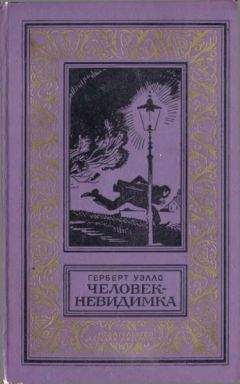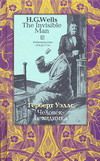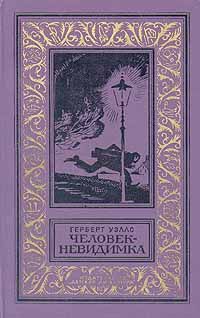H. Wells - Английский язык с Г. Уэллсом "Человек-невидимка"
Someone sniffed as he did so (при этом кто-то фыркнул/шмыгнул носом).
“One thing is indisputable (одно бесспорно; dispute— диспут, спор),” said Bunting, drawing up a chair next to that of Cuss (сказал Бантинг, пододвигая стул к стулу Касса). “There certainly have been very strange things (несомненно, очень странные вещи) happen in Iping during the last few days — very strange (произошли в Айпинге за последние несколько дней — очень странные). I cannot of course believe in this absurd invisibility story — (конечно, я не верю в эту нелепую историю о невидимости…)”
indisputable ["IndI`spjHtqb(q)l], course [kLs], absurd [qb`sq:d]
“I daresay so,” said Cuss. “My nerves are all loose to-day. It quite made me jump — the door opening like that.”
Mr. Bunting smiled as if he had not jumped.
“And now,” he said with a sigh, “these books.”
Someone sniffed as he did so.
“One thing is indisputable,” said Bunting, drawing up a chair next to that of Cuss. “There certainly have been very strange things happen in Iping during the last few days — very strange. I cannot of course believe in this absurd invisibility story — ”
“It’s incredible (это невероятно),” said Cuss — “incredible. But the fact remains that I saw (но остается тот факт, что я видел) — I certainly saw right down his sleeve — (я точно заглянул прямо в рукав…)”
“But did you — are you sure (так ли это — вы уверены)? Suppose a mirror, for instance (допустим, например, /что там было/ зеркало) — hallucinations are so easily produced (зрительные иллюзии так легко вызываются). I don’t know if you have ever seen a really good conjuror — (не знаю, видели ли вы когда-нибудь по-настоящему хорошего фокусника…; to conjure — заклинать)”
“I won’t argue again (я не буду снова спорить),” said Cuss. “We’ve thrashed that out, Bunting (мы уже все обсудили, Бантинг; to thrash — бить, молотить; to thrash over old straw — толочь воду в ступе: «сновамолотитьстаруюсолому»). And just now there’s these books (а теперь, /обратимся/ к книгам) — Ah! here’s some of what I take to be Greek (ага, вот, по-моему, греческий; to take — брать; думать, полагать)! Greek letters certainly (конечно, греческие буквы).”
He pointed to the middle of the page (он указал на середину страницы). Mr. Bunting flushed slightly (мистер Бантинг немного покраснел) and brought his face nearer (и приблизил лицо = склонился /над книгой/; to bring), apparently finding some difficulty with his glasses (очевидно, с его очками опять что-то случилось; to find difficulty in smth. — испытыватьтрудностивчем-либо). Suddenly he became aware of a strange feeling at the nape of his neck (вдруг у него возникло странное ощущение в затылке; to become aware — ощущать, чувствовать). He tried to raise his head (он попытался поднять голову), and encountered an immovable resistance (и встретил непреодолимое сопротивление; to encounter — встретиться, сталкиваться/струдностямиит.д./; immovable — неподвижный, непоколебимый, стойкий). The feeling was a curious pressure (это ощущение было /похоже на/ странное давление), the grip of a heavy, firm hand (надавливание тяжелой, сильной руки), and it bore his chin irresistibly to the table (и эта рука сильно прижала его подбородок к столу; to bear — /пере/носить; выдерживать/нагрузку, тяжесть/; irresistibly — неотразимо, непреодолимо).
hallucination [hq"lHsI`neIS(q)n], conjuror [`kAnG(q)rq], argue [`RgjH], resistance [rI`zIstqns]
“It’s incredible,” said Cuss — “incredible. But the fact remains that I saw — I certainly saw right down his sleeve — ”
“But did you — are you sure? Suppose a mirror, for instance — hallucinations are so easily produced. I don’t know if you have ever seen a really good conjuror — ”
“I won’t argue again,” said Cuss. “We’ve thrashed that out, Bunting. And just now there’s these books — Ah! here’s some of what I take to be Greek! Greek letters certainly.”
He pointed to the middle of the page. Mr. Bunting flushed slightly and brought his face nearer, apparently finding some difficulty with his glasses. Suddenly he became aware of a strange feeling at the nape of his neck. He tried to raise his head, and encountered an immovable resistance. The feeling was a curious pressure, the grip of a heavy, firm hand, and it bore his chin irresistibly to the table.
“Don’t move, little men (не двигайтесь, милейшие: «маленькие человечки»),” whispered a voice (прошептал голос), “or I’ll brain you both (или я размозжу вам обоим головы)!” He looked into the face of Cuss, close to his own (он взглянул в лицо Касса, /находившееся/ близко от его /лица/), and each saw a horrified reflection of his own sickly astonishment (и каждый увидел отражение собственного ужаса и изумления; to horrify — ужасать; шокировать; sickly — болезненный, нездоровый; тошнотворный, отвратительный).
“I’m sorry to handle you so roughly (сожалею, что /приходится/ обращаться с вами так грубо),” said the Voice, “but it’s unavoidable (но это неизбежно; to avoid — избегать).”
“Since when did you learn to pry into an investigator’s private memoranda (с каких это пор вы научились совать нос в частные записи исследователя; to pry — соватьносвчужиедела, любопытствовать, подглядывать; memorandum — заметка, /памятная/ записка),” said the Voice; and two chins struck the table simultaneously (сказал Голос, и два подбородка одновременно ударились о стол; to strike), and two sets of teeth rattled (и две пары челюстей щелкнули; set — комплект, набор; tooth — зуб; to rattle — трещать, греметь; дребезжать, сильностучать).
“Since when did you learn to invade the private rooms of a man in misfortune (с каких это пор вы научились вторгаться в частные комнаты человека, /попавшего/ в беду; misfortune —беда, неудача, несчастье)?” and the concussion was repeated (и удар /о стол/ повторился; concussion — удар, сотрясение).
“Where have they put my clothes (куда дели мою одежду)?”
roughly [`rAflI], simultaneously ["sIm(q)l`teInIqslI], misfortune [mIs`fLC(q)n]
“Don’t move, little men,” whispered a voice, “or I’ll brain you both!” He looked into the face of Cuss, close to his own, and each saw a horrified reflection of his own sickly astonishment.
“I’m sorry to handle you so roughly,” said the Voice, “but it’s unavoidable.”
“Since when did you learn to pry into an investigator’s private memoranda,” said the Voice; and two chins struck the table simultaneously, and two sets of teeth rattled.
“Since when did you learn to invade the private rooms of a man in misfortune?” and the concussion was repeated.
“Where have they put my clothes?”
“Listen (послушайте),” said the Voice. “The windows are fastened (окна закрыты) and I’ve taken the key out of the door (и я вытащил ключ из двери). I am a fairly strong man (я довольно сильный человек), and I have the poker handy (и под рукой у меня кочерга;handy — доступный; близкий, /имеющийся/ под рукой) — besides being invisible (кроме того, что я невидим). There’s not the slightest doubt (не подлежит ни малейшему сомнению) that I could kill you both and get away quite easily if I wanted to (что я мог бы убить вас обоих и очень легко уйти, если бы захотел; to get away — удирать, уходить, ускользать) — do you understand (понимаете)? Very well (отлично). If I let you go will you promise not to try any nonsense (если я вас отпущу, вы обещаете не делать глупостей) and do what I tell you (и исполнить то, что я вам скажу)?”
The vicar and the doctor looked at one another (викарий и доктор посмотрели друг на друга = переглянулись), and the doctor pulled a face (и доктор скорчил гримасу).
“Yes (да),” said Mr. Bunting, and the doctor repeated it (сказал викарий, и доктор повторил это). Then the pressure on the necks relaxed (затем давление на их шеи ослабло), and the doctor and the vicar sat up (доктор и викарий выпрямились), both very red in the face and wriggling their heads (лица у обоих были красными, и они вертели головами; red in the face — багровый, побагровевший/отгнева, напряженияит.д./; to wriggle — извивать/ся/, изгибать/ся/).
fastened [`fRs(q)nd], doubt [daut], wriggling [`rIglIN]
“Listen,” said the Voice. “The windows are fastened and I’ve taken the key out of the door. I am a fairly strong man, and I have the poker handy — besides being invisible. There’s not the slightest doubt that I could kill you both and get away quite easily if I wanted to — do you understand? Very well. If I let you go will you promise not to try any nonsense and do what I tell you?”



